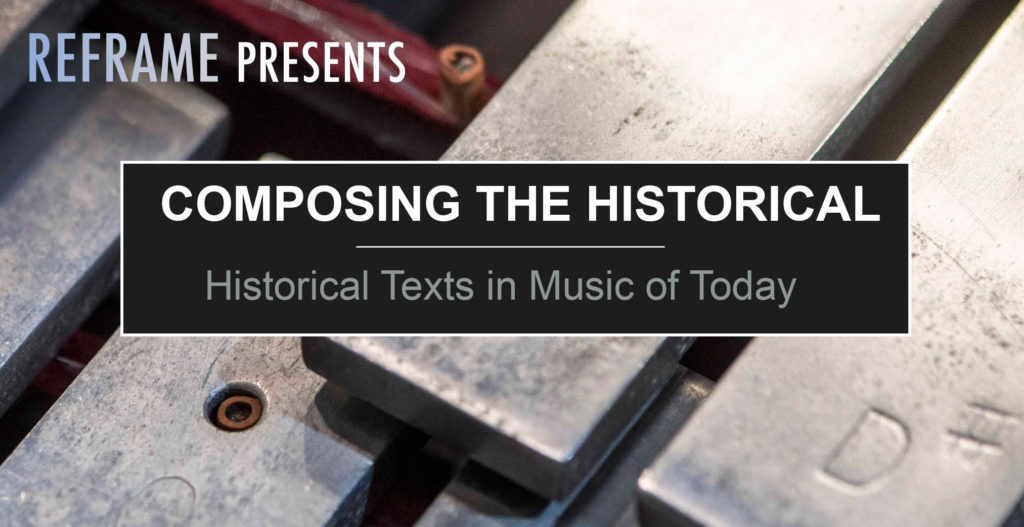We are excited to present the latest roundup of newly published open access scholarly items at REFRAME, now hosted by the School of Media, Arts and Humanities, University of Sussex.
- New site COMPOSING THE HISTORICAL – a series of interviews that asks composers why and how their work engages with pre-existing texts.
- Two new pieces at LIFE WRITING PROJECTS – creative representations of lived experience that set their own rules rather than following the conventions of genres such as memoir or biography.
- A host of new contributions at MEDIÁTICO – research, news, views and perspectives on Latin(o/a) American, Spanish and Portuguese media cultures.
- New contribution at RE.FRAMING ACTIVISM – an interdisciplinary, multimedia blog that brings together academic research, media practice and current news about mediated activism.
NEW SITE: COMPOSING THE HISTORICAL
Editors: Ed Hughes, Mimi Haddon and Evelyn Ficarra
Composing the Historical: Historical Texts in Music of Today is devised, curated and edited by Ed Hughes, Mimi Haddon and Evelyn Ficarra, and features interviews with Evelyn Ficarra, Roxanna Panufnik, Shirley Thompson OBE, Judith Weir CBE, Rowland Sutherland, Kerry Andrew, Martin Butler, Tom Armstrong and Ed Hughes. Through these interviews, this project asks why and how some of their work engages with pre-existing texts.
Does this work imply nuanced affinities with historical methods and practices that enrich musical language today with perspectives and ‘voices’ from other times? Does this work speak to tensions between modernist and post-modernist perspectives in composition? And how does transformation work in their music, tracing studies in compositional models into novel and original expression offering new musical experiences for today’s audiences? The project considers these questions and more – please follow this link to read the interviews as well as Ed Hughes’ Introduction ‘On music texts and living affinities’: https://reframe.sussex.ac.uk/composingthehistorical/
NEW CONTENT at MEDIÁTICO
Editors: Dolores Tierney, Catherine Grant
Thanks to the hard work and contributions of Mediático’s editors and contributors over the last few months, we have a diversity of fantastic new content to present.
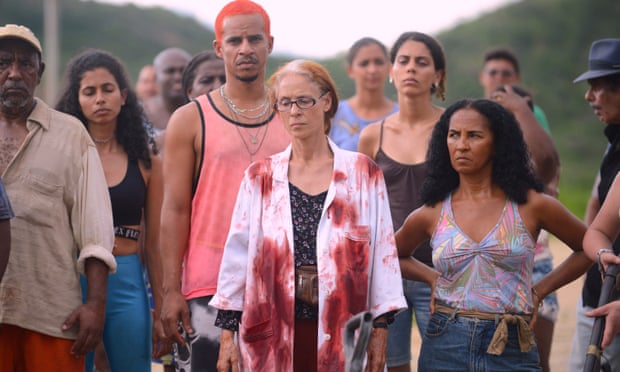
An introduction to the winner of the Jury Prize at the Cannes Film Festival 2019 Bacurau (Kleber Mendonça Filho) by regular and fabulous contributor Natália Pinazza, lecturer in Portuguese at the University of Exeter. Dr Pinazza’s post gives an excellent introduction to Bacarau providing some background to the film that explains why the villagers of Bacarau have been targeted in the near future world the film depicts, a world which nevertheless speaks to Brazil’s current political context.
b) Brazilian Film in the Time of Corona virus
A post on Brazilian Cinema in the Time of Corona Virus by regular contributor, Stephanie Dennison, Professor of Brazilian Studies and director of the Centre for World Cinemas and Digital Cultures at the University of Leeds.
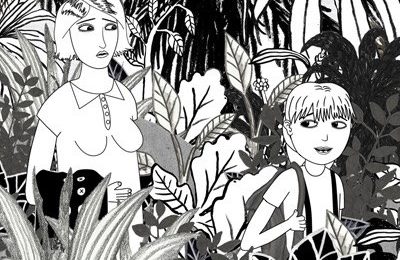
c) Virus Tropical (Santiago Caicedo, Colombia/Ecuador, 2017): The ‘infectious’ nature of female subjectivity
In the spirit of continuing support and community as the world continues to fight against Covid-19, we present an excellent introduction to the animated coproduction between Ecuador and Colombia Virus Tropical (Santiago Caicedo, 2017) by regular contributor Natália Pinazza (@DrNPinazza), Lecturer in Portuguese at the University of Exeter.
d) Latin American Writers Series Fall 2019: Powerpaola, un recorrido por su obra, influencias y publicaciones
A sneak peak of the first of an ongoing “Latin American Writers Series” sponsored by the Stone Center for Latin American Studies at Tulane University and put together by prize winning author (and regular Mediático contributor) Gabriela Alemán. This first instalment, presents a journey through the work, influences and publications of Powerpaola the author and artist of Virus Tropical (2011) the film adaptation of which she collaborated on and was reviewed on Mediático by Natália Pinazza.
e) Spanish Cinema Against Itself: Cosmopolitanism, Experimentation, Militancy
An essay by Steven Marsh, Professor of Spanish Film and Cultural Studies at the University of Illinois at Chicago, where he is currently Head of Hispanic and Italian Studies. The essay he has generously shared with us is adapted from the introductory chapter of his new book Spanish Cinema against Itself (Indiana University Press, 2020).
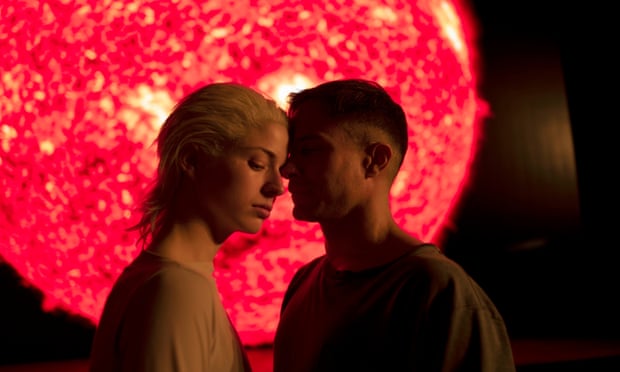
f) Introduction to the Special Dossier on Ema (Pablo Larraín 2019)
An extensive and much-needed special dossier on Pablo Larraín’s Ema (2019), guest edited by Dunja Fehimović, that fills the critical lacunae left by English language press summations of the film. In six excellent and thought provoking posts that range from an exploration of the film’s political engagement and resonances in Larraín’s contemporary Chile and across Latin America, to Cuban audience reactions to its foregrounding of reggaeton, the authors of this special dossier situate Ema firmly within the very specific context of its cultural production.
- Dunja Fehimović, ‘Introduction’
- Laura Hatry, ‘Ema: A Premonitory Performance of Fire and Dance‘
- Rachel Randall, ‘Alternative Reproductive Futures in Ema and Divino amor‘
- Paul Merchant, ‘Ema Navigates the Port‘
- Philippa Page, ‘Dancing Larraín’s Ode to Valpo and Ema’s Very Own Myth of (Re)Creation’
- Ellen Bishell, ‘Ema’s Mise En Abyme: Music Video Aesthetics and Women in Reggaeton’
- Dunja Fehimović, ‘Ema in Havana: Reacting to Reggaeton’
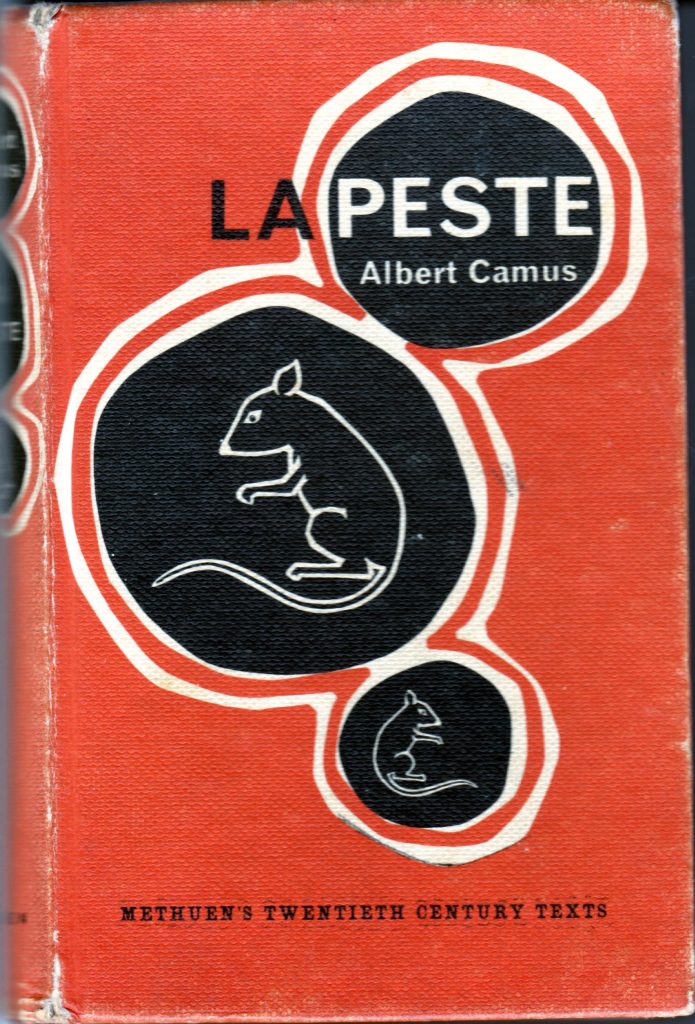
NEW PIECES at LIFE WRITING PROJECTS
Editor: Lyn Thomas
a) The Plague Revisited – Re-reading Camus in lockdown by Jeremy Page
We are delighted to publish a new and timely piece by Jeremy Page on Life Writing Projects. Jeremy re-read The Plague by Albert Camus during the first lockdown, and was struck by the novel’s compelling portrayal of the ethical dilemmas the protagonists face, and the humility and commitment to the well being of others that they display:
‘Camus used the metaphor of plague to explore what it means to be human in a universe where there is no redemption to be had from God. While the heroic acts of Rieux and Tarrou are the most obvious examples in the novel, Camus also foregrounds the less obvious contributions of individuals like Grand and Rambert, who quietly go about their business, doing what they can to mitigate suffering. Covid-19, too, has its heroes of both varieties. The frontline workers who risk their own health and wellbeing in the service of others. And all those others who quietly get on with the business of doing whatever they can. Resistance takes many forms. Camus, perhaps, understood this better than most’.
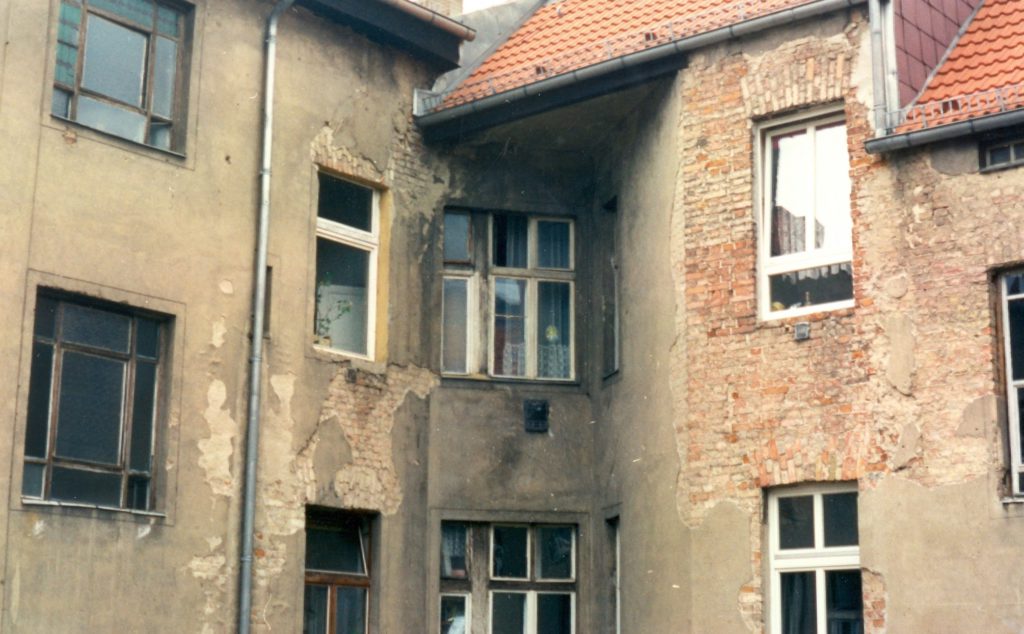
b) Berlin by Alexandra Loske
In a new piece for Life Writing Projects, Alexander Loske writes: ‘I left Berlin nearly a quarter of a century ago to live in Brighton, and in November 2019 I went back to celebrate the 30th anniversary of the fall of the Wall, a momentous, joyous occasion that made me reflect on what Berlin meant to me, and how it influenced where and how I have lived my life since I spent half a decade there in the early 1990s. I return regularly, of course, and indeed kept my flat near Kollwitzplatz in the area of Prenzlauer Berg (then unbearably hip, now unbearably gentrified) for several years when I first came to the UK, just in case things didn’t work out for me here. On this last visit I took my British-German family with me and we celebrated with our international group of friends the peaceful revolution of 1989 in Germany. I also wanted to teach our young daughter a thing or two about what freedom means, by visiting this vast, scarred, thriving, multi-cultural city. We had, of course, no inkling that this would be our last visit for what already feels like a very long time, because of the Covid-19 pandemic.’
NEW CONTIBUTIONS at RE.FRAMING ACTIVISM
Editor: Dr Eleftheria Lekakis

Controlled death narrative: Worlding in China and the communication logic of totalitarianism
Following REFRAME’s research showcase presentation at Chinese University of Hong Kong by REFRAME Managing Editor Tanya Kant and Re.Framing Activism Editor Eleftheria Lekakis, we are delighted to have CUHK Assistant professor Sara Liao contribute a post for Re.Framing Activism. She shares her thoughts on coronavirus and freedom of speech with her post, ‘Whistleblowers and the Short-lived Protest of Freedom of Speech’.
A huge thank you to everyone who has contributed to REFRAME or REFRAME-affiliated projects over what has been a challenging year for so many of us. From everyone at REFRAME, wishing you happy holidays and a restful break!

